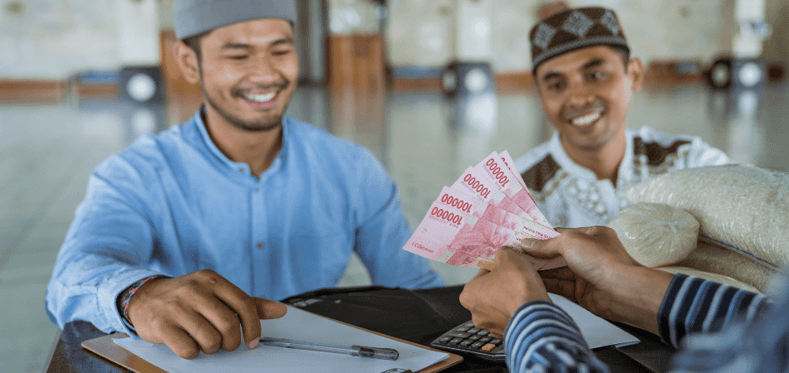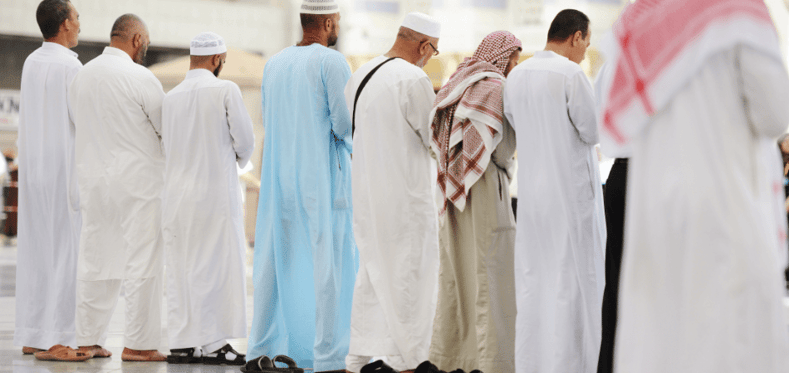Table of Contents
- Introduction
- The Concept of Charity in Islam
- Ramadan Kareem and Charity
- Community in Islam
- Ramadan Kareem and Community
- The Benefits of Embracing Charity and Community during Ramadan Kareem
- FAQs
- conclusion
Introduction
Ramadan Kareem is a month-long religious observance in the Islamic calendar, during which Muslims fast from dawn to sunset. It is a time of spiritual reflection, prayer, and charity.
The word "Ramadan" comes from the Arabic word "ramada" which means scorching heat or dryness.
The word "Kareem" means generous, and thus, Ramadan Kareem is a month of generosity and giving.
Ramadan Kareem holds an important place in the Islamic calendar as it commemorates the revelation of the Quran to Prophet Muhammad (peace be upon him).
Fasting during Ramadan is one of the Five Pillars of Islam, and it is mandatory for all adult Muslims who are physically and mentally capable.
It is believed that during this month, the gates of heaven are open, and the gates of hell are closed, so, Muslims strive to do good deeds and seek forgiveness for their sins.
Apart from the spiritual significance, Ramadan Kareem also plays a vital role in fostering community and charity.
Muslims are encouraged to perform acts of kindness, give to charity, and provide for those in need.
It is a time of togetherness, as families and friends come together to break their fasts and share meals.
The sense of community is further strengthened by special prayers, known as Taraweeh, which are held in mosques during the month.
In this blog, we will explore the importance of Ramadan Kareem in embracing charity and community.
We will discuss how this month fosters a sense of generosity and compassion, and how it brings people together.
We will also look at some of the traditions and practices associated with Ramadan Kareem and how they contribute to the overall experience of this blessed month.
The Concept of charity in Islam

Charity is an essential concept in Islam and is known as "Zakat" in Arabic. Zakat is one of the Five Pillars of Islam and refers to the act of giving a specific portion of one's wealth to those in need.
As well as there are multiple types of sadaqah in Islam like sadqah jariyah, sadaqah al fitr, sadaqah for family and friends, and sadaqah for general causes.

Zakat: This is a mandatory charity that is given annually. It is calculated as 2.5% of one's wealth that has been held for one year.
Sadaqah jariyah: This is a continuous charity that keeps on giving even after the person who gave it has passed away. Examples of this include building a mosque, digging a well, or supporting an orphanage.
Sadaqah al-fitr: This is a charity given during the month of Ramadan before Eid al-Fitr. It is usually given in the form of food to those in need.
Sadaqah for family and friends: This is a voluntary charity given to family members, friends, and neighbors who are in need.
Sadaqah for general causes: This is a voluntary charity given to support a cause such as providing aid to refugees, supporting education, or providing healthcare.
Here you can find 10 surprising facts about Ramadan that you didn’t know.
The Importance of Charity in Islam
The importance of charity in Islam is emphasized in the Quran and the Hadith, where it is considered a means of purifying one's wealth and earning the pleasure of Allah.
Giving charity is also seen as a way of fulfilling one's social responsibility and helping to build a just and equitable society.
Muslims believe that the act of giving charity not only benefits those in need but also brings spiritual benefits to the giver, such as increased compassion, gratitude, and humility.
In Islam, charity is not only about giving money, but also about giving one's time, skills, and knowledge to help those in need.
It is believed that giving charity is a means of purifying one's wealth and seeking the pleasure of Allah.
In this ramadan you can rent a car in Abu Dhabi and explore the city's beauty with convenience and comfort.
Ramadan Kareem and Charity
Ramadan Kareem is a holy month in the Islamic calendar, where Muslims around the world observe fasting, prayer, and self-reflection. It is also a month of generosity, compassion, and charity.
Charity, or "zakat," is one of the five pillars of Islam, and Muslims are encouraged to give to those in need throughout the year.
However, during Ramadan, the importance of charity is heightened, and many Muslims choose to give more generously.
The significance of charity during Ramadan Kareem lies in the belief that giving to those in need is a way of purifying oneself and showing gratitude for the blessings received.
It is also seen as a way of following the example of Prophet Muhammad (PBUH), who was known for his generosity and kindness.
There are many ways in which charity is practiced during Ramadan Kareem. One of the most common ways is through the payment of "zakat al-fitr," which is a donation given at the end of Ramadan to provide food for those in need.
Muslims are also encouraged to give to various charitable organizations and causes, such as providing healthcare, education, or clean water to those who lack access.
Additionally, many mosques and community centers set up programs during Ramadan to feed those in need, host iftar meals for the community, and distribute food and other necessities to the less fortunate.
The impact of charity during Ramadan Kareem is significant. Not only does it provide immediate relief to those in need, but it also fosters a sense of community and empathy among Muslims.
By giving to those less fortunate, individuals are reminded of the blessings they have and are encouraged to be more grateful and compassionate.
Overall, charity is an essential aspect of Ramadan Kareem and plays a significant role in the lives of Muslims around the world.
It is a way of showing gratitude, purifying oneself, and helping those in need, ultimately strengthening the bonds of community and fostering a spirit of generosity and compassion.
Community in Islam
In Islam, the community plays a vital role in shaping the lives of Muslims. The Quran emphasizes the importance of community in several verses, such as "And hold fast, all of you together, to the rope of Allah, and do not be divided among yourselves" (3:103).
The concept of Ummah, or the Muslim community, is central to Islam. Muslims are encouraged to form bonds with one another, support each other, and work together towards common goals.
This sense of community is particularly important during Ramadan Kareem, the holy month of fasting.
During Ramadan, Muslims around the world come together to fast, pray, and perform acts of charity.
The communal aspect of this month is crucial, as it allows Muslims to connect with one another and deepen their faith. Muslims are encouraged to break their fasts together with family, friends, and neighbors, and to attend communal prayer at the mosque.
The impact of the community during Ramadan Kareem is significant. It creates a sense of belonging, strengthens bonds, and provides support to those who may be struggling with fasting.
It also fosters a spirit of generosity and compassion, as Muslims work together to help those in need.
Overall, the community is a fundamental aspect of Islam and plays a critical role in shaping the lives of Muslims. During Ramadan Kareem, the power of community is particularly apparent, as Muslims come together to strengthen their faith, support each other, and make a positive impact on the world around them.
Ramadan Kareem and Community

Community is significant during Ramadan Kareem because Muslims believe that when they come together, their good deeds and prayers are multiplied.
Mosques are the center of community activity during Ramadan Kareem, and they offer a place for people to gather, pray, and break their fast together.
Muslims also participate in charitable acts during Ramadan Kareem, such as donating food or money to those in need, which fosters a sense of community and compassion.
The impact on the community during Ramadan Kareem is immense. The sense of togetherness and support that comes from being part of a community can help individuals stay motivated and focused during the month of fasting.
The community also provides a support system for those who may be struggling with the physical and emotional challenges of fasting.
Additionally, the community during Ramadan Kareem offers a sense of belonging and connection to something larger than oneself. It is a time for people to come together and celebrate their faith, culture, and traditions.
This sense of community can also continue beyond Ramadan Kareem, as people develop long-lasting friendships and relationships.
In summary, the community is an essential part of Ramadan Kareem. It offers a sense of togetherness, support, and belonging that can help individuals stay motivated and focused during the month of fasting.
The impact of the community during Ramadan Kareem is significant and can continue beyond the month as people develop long-lasting relationships and connections.
The Benefits of Embracing Charity and Community during Ramadan Kareem

This month also presents a unique opportunity for individuals to give back to their community and embrace charity.
There are numerous benefits of embracing charity and community during Ramadan, which can be broadly categorized into personal, community, and spiritual benefits.
Firstly, there are personal benefits to embracing charity during Ramadan. Giving back to the community fosters a sense of purpose and fulfillment within individuals, which can lead to increased happiness and a sense of well-being.
Additionally, practicing charity helps individuals develop empathy and compassion towards others, which can lead to improved relationships and increased social connectedness.
Secondly, the community benefits of embracing charity during Ramadan are significant.
Acts of charity such as donating to food banks or volunteering at local charities can have a significant impact on the lives of those in need.
These actions also help build a stronger sense of community, as individuals come together to support one another and work towards a common goal.
Lastly, there are spiritual benefits to embracing charity during Ramadan. Giving back to the community is an important aspect of Islam, and it is believed that such actions can bring individuals closer to Allah.
Moreover, practicing charity during Ramadan can help individuals reflect on the blessings in their own lives and become more grateful for what they have.
In conclusion, embracing charity and community during Ramadan Kareem can bring numerous benefits to individuals and the wider community.
From personal fulfillment to building a stronger sense of community, and spiritual growth, embracing charity is an important aspect of the holy month of Ramadan.
FAQs
Q.1 What is the importance of Ramadan Kareem?
A. Ramadan Kareem is the holiest month in the Islamic calendar, where Muslims fast from dawn till dusk to develop self-control and empathy towards the less fortunate. It is also a time of reflection, spiritual renewal, and an opportunity to strengthen one's faith.
Q.2 How is charity related to Ramadan Kareem?
A. Charity is one of the fundamental principles of Islam, and Ramadan Kareem is an ideal time to practice it. Muslims are encouraged to donate money, food, and other essential items to those in need during this month.
This act of kindness is believed to purify one's soul and bring blessings and rewards from Allah.
Q.3 What is the concept of charity in Islam?
A. In Islam, charity is known as Zakat, which means "purification" or "growth." It is a mandatory act of worship that involves donating a portion of one's wealth to those in need.
It is one of the five pillars of Islam and is considered a means of attaining closeness to Allah.
Q.4 How does Ramadan Kareem foster community in Islam?
A. Ramadan Kareem is a time of togetherness and community spirit. Muslims gather for pre-dawn meals, known as Suhoor, and break their fasts together at sunset, known as Iftar.
This fosters a sense of belonging and creates a shared experience of spiritual growth.
Q.5 What are the benefits of embracing charity and community during Ramadan Kareem?
A. Embracing charity and community during Ramadan Kareem can have numerous benefits, including strengthening one's faith, promoting unity and social harmony, developing empathy and compassion, and increasing feelings of gratitude and thankfulness.
It also fosters a sense of purpose and fulfillment by giving back to those in need.
Conclusion
In conclusion, the importance of Ramadan Kareem in embracing charity and community cannot be overstated.
The concept of charity in Islam is deeply rooted in the faith and is a fundamental part of the holy month.
Through fasting and giving, Muslims are reminded of their obligation to help those in need and to contribute to the betterment of their communities.
Ramadan Kareem also emphasizes the importance of community and encourages Muslims to come together to break their fast and pray in the congregation.
This creates a sense of belonging and unity among Muslims, strengthening their faith and fostering a spirit of cooperation and mutual support.
The benefits of embracing charity and community during Ramadan Kareem are numerous. It helps individuals develop empathy, compassion, and a sense of social responsibility.
It also promotes a culture of giving, generosity, and selflessness, which are essential for building strong and resilient communities.
In summary, Ramadan Kareem is a time for Muslims to reflect on their faith, strengthen their relationship with Allah, and contribute to the well-being of their communities.
Embracing charity and community during this holy month is an important part of the Muslim faith and can have profound personal and social benefits.
In conclusion, the importance of Ramadan Kareem in embracing charity and community cannot be understated. It is a time for Muslims to come together, strengthen their faith, and help those in need.
As we continue to face the challenges of our time, let us take inspiration from the teachings of Ramadan Kareem and work towards building more compassionate, generous, and inclusive societies.






